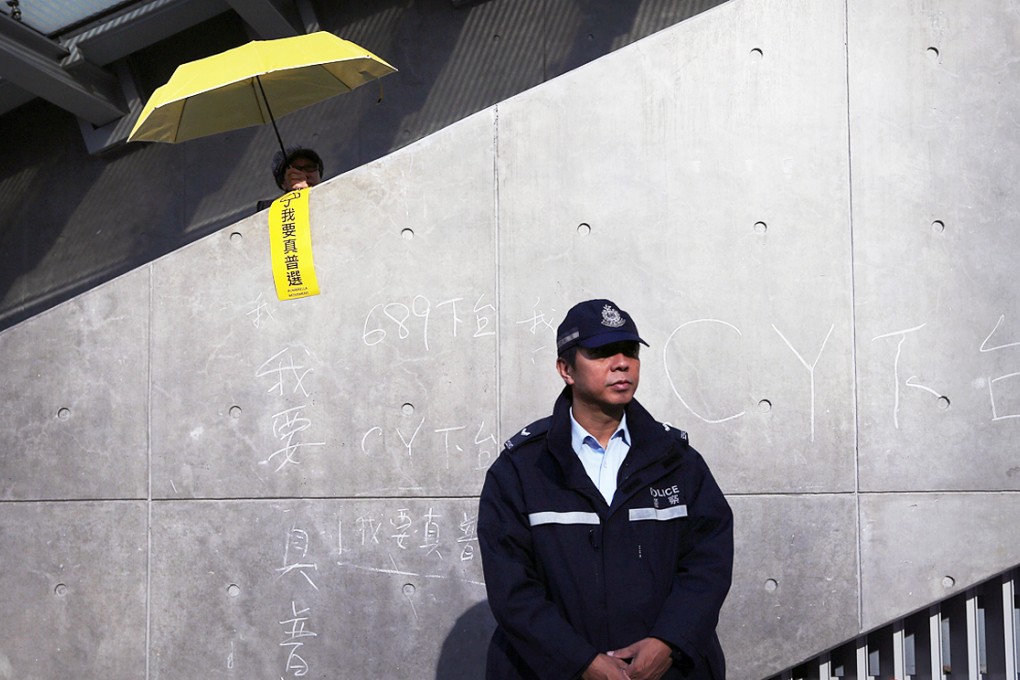Occupy cases litmus test for Hong Kong's rule of law
Three weeks after the clearance of the Occupy protests, the police are hunting the key figures involved. Dozens of pan-democrats are being told to report to police headquarters, where they are expected to be arrested.

Three weeks after the clearance of the Occupy protests, the police are hunting the key figures involved. Dozens of pan-democrats are being told to report to police headquarters, where they are expected to be arrested. Controversial as they are, the cases are a test for Hong Kong's rule of law. It is imperative that they be handled fairly and in accordance with the law. Legal consequences were to be expected when students and pan-democrats pushed ahead with the civil disobedience campaign in an attempt to pressure Beijing to grant the city greater democracy. As soon as the last patch of the street blockades was cleared, the police chief pledged to complete investigations in three months and bring the key players to justice. It should therefore come as no surprise if the activists are arrested, charged and tried in court eventually.
It may be tempting to brand the police action as political retribution. No arrests were made when dozens turned themselves in to the police following the Mong Kok clearance in November. But the truth is that arrests and prosecutions are always scripted as part of the campaign. The activists even argue that surrender is in line with the spirit of the rule of law. If those who have broken the law are prepared to be held accountable for their actions, it makes no sense to criticise the police when they are merely pursuing the cases according to the law. So far there is no evidence to suggest political considerations are involved. The arrests are within expectations.
That said, the cases are highly controversial, not only because they involve big names in the pan-democratic camp, but also politically sensitive issues such as public order, unlawful assembly and instigation. The process will no doubt be closely watched at home and abroad.
Whoever breaks the law should be ready to face the legal consequences. The question is whether the proceedings are fair and just. Hong Kong prides itself as a place with rule of law. The Occupy cases will be a litmus test.